I’m super excited to introduce you to an amazing practitioner who I have had the absolute privilege of meeting in person over in Bali. Being able to see his extraordinary journey from his own health crises to running multiple different places and spaces as a practitioner. He has seen and helped so many people through anxiety, oncology, and all sorts of different facets to his practice. Now he has gone online and is sharing all his gifts, talents, and experiences as a mentor.
Today, I’m really excited to talk to him specifically about the way that he teaches finding your niche!
How Eddie developed his process
T: We’ve talked about how there is this big gaping hole when we start out in practice and think about who we really want to help. It’s like we have these big blinders that come on and we think we have to help everybody.
You’ve had a version of that, right? You wanted to help everybody, in every location, everywhere!
Can you tell us how it all came that you came across this thought process?
E: Well, that’s a pretty big story. How long have we got? (laughing) Wow, it started probably eight or nine years ago. I was very, very lucky to be gifted a business, actually, so it was an established business of ten years. It was a health centre that had a yoga hall and it had ran about 13 practitioners working from it. I got to keep it up, literally for free. You know that stuff just doesn’t happen!
It wasn’t the best running business, which made it a bit of work. I ploughed into that. At that time, I was doing a huge amount of self-development and business development stuff. I was super pumped to be an entrepreneur and I went completely into it hardcore. I developed that up and put a cafe in and we got up to about 15 or 18 practitioners.
As I’m sure you know, I had many, many hats. I was scrubbing toilets, mowing lawns, gardening, fixing gutters and then I was marketing and consulting. On top of that, I was trying to micromanage 15 to 18 people. It was incredibly unfulfilling and incredibly stressful.
I was burning the candle massively, having to stick massive hours in, which was disconnecting me from my own practice. Which is why I was really trying to do it in the first place. But also it was having massive issues outside of practice, as well, in my family life and relationship. It ended up starting to show cracks in my relationship with resentment building because I was spending so much time and effort on the business. All my energy was spent in the wrong places and so that was taking tolls. I was becoming incredibly unfulfilled, unhappy, and incredibly stressed and felt like a jack-of-all-trades, master of none.
I got the divine knock on the door one day.
It was ten days before Christmas, actually, and I was diagnosed with cancer. So life really came crumbling down and that set me on a big journey of self-discovery, learning to connect back with myself and how to find balance, which took quite a few years. I had a few relapses of my cancer because I was doing everything that I thought I should be doing with my treatments, my diet, my supplements, and all that sort of stuff. But I was trying to maintain that life that was around me, so epigenetically, I wasn’t changing anything. I still had the business and was still trying to maintain that.
I’ve thought a lot about this stuff. On one level, I think it was satisfying a part of me and my ego. It was making my sense of self and my sense of achievement. I was getting accolades and all that sort of stuff. But it was a bit of an unhealthy relationship. So I had a couple of relapses. I was really unwell, unwell I was pretty close to checking out, actually. There was a 9-centimetre by 8 by 3-centimetre tumour in my abdomen in between aorta vena cava, so it was a pretty unusual place to have it as well. I had two in my chest, two under my collarbone, one in my neck, and one in my lung when I was at my worst. That tumour in my abdomen was pressing my bowel up against one side, also, so I was pretty unwell.
At one point I had to ask the question – What am I missing?
I was doing everything right on paper, on the science side of it. My diet was good and I was doing the right chemotherapy. But it wasn’t working and it should have been. I had testicular cancer, which is like the most treatable cancer, you know? Usually, the first-line treatment works 96% of the time or something like that. So why was I having multiple relapses and getting chemo-resistant and really aggressive cancer?
It made me realise that it wasn’t what I was doing that was the problem. It was the way that I was doing that was the problem. So my epigenetic factors, ‘the chemistry of my life’ as I like to call it, was so chaotic, uncontrolled, unfulfilling, and stressful that it was literally overriding the best treatments in the world that were pretty much proven to work.
I had to make massive changes and find a balance.
It was a long journey to understanding what that homeostasis was for me – physically, mentally, emotionally, socially, financially – all that stuff. That was a long journey of tweaking the way that I practice and working smarter not harder. And this is where the Club’s been absolutely amazing for me. It helped me develop my own program to give the gifts that I’ve learned along this journey and basically give everything that I had to offer out in the form of a program that I developed with the Club. This allows me to work in a different way so it’s not that grind.
T: It serves that epigenetic side and it serves that part of your life to create that homeostasis.
E: You know, it just buys time for you. We’re not just practitioners, we’re not just our jobs. We have lives outside of that. Sometimes there’s not a lot of space left in our working life, our daily life, for us.
And now I see the opposite end of this in my patients coming in. They are cancer patients and they haven’t been self-caring. There are lots of factors around cancer, not just that, but we can get into this place where you flushed yourself because it becomes about the daily grind, and the finances and what have you. Now I get to mentor people on how to create a balance again.
All of that really set me on a path of understanding myself well and when I could understand myself then I can be of maximum service to people. Owning my part in this whole journey, owning my ‘stuff,’ allows me to come from a place of authenticity.
Who am I to talk about health? I had cancer!
T: So, back in the beginning, you were spreading yourself thin in multiple different areas. You were giving to the practitioners, to the business, you were giving to your family and you were giving to every different type of patient that came in the door. What happens when you need to ‘niche’ your life into alignment? I’ve heard a little part of your story about not wanting to treat cancer patients.
E: There was a lot of shame around that, you know? As a practitioner, I was a naturopath and I had cancer three times! Who am I to talk to anyone about health? Look at me!
So there was a lot that I had to work through and to own. I had to see the hidden blessings that were actually in there. I’m a huge believer that onus comes into your life for a reason. It’s not always just a malfunction of biochemistry. After you’ve consulted with enough people, and you hear their stories, you can see why people get unwell. I know exactly why I got unwell. I don’t blame my body whatsoever for getting unwell.
But I had to own that and realise that in suffering there’s a huge amount of learning. And I see that with my patients, as well. When do we move the most in life? It’s when we’re in pain, when we’re suffering. That was almost like a PhD in suffering for me and in growth.
So I’m not an expert but I know what I know. And I use that now as my base for my niche. Because how I can be of maximum service is through what I’ve been through in my life. I got through it, fortunately, so I have something to offer some people if they want to listen. It allows me to speak from a place of authenticity. I’m a huge believer in vulnerability and in practice, if I can let myself drop into that vulnerable space, it’s a hugely powerful tool. It can help give to people and get people to shift and move.
It’s not just about taking pills and potions and lotions
I just put a post on Facebook yesterday that without change, you don’t change. If people want to get better, they have to change. It’s not just about taking pills and potions and lotions. They need to make epigenetic changes – usually life changes – which are really yucky.
T: This is a really good point. Finding your niche isn’t just about, “I have all this knowledge in this area. I know all of the herbs and the biochemistry in this particular area.” Finding your niche is actually that change element. Knowing that person’s story and what’s motivating them to change or what’s holding them back from creating that change is the turning point. You can know everything about a particular subject, symptomology, or disease state. But the bit that’s so important is your level of empathy, vulnerability, and authenticity.
Knowing what’s going to stop that person – what stopped you – and what will move the needle for them.
It’s all about the “Why”
E: Yeah, and as you said in your video last Thursday, they are just you, two months ago, two years ago, or ten years ago – whatever the timeline is. You know that person because you are that person. I think there’s a trap that modern praccies are starting to go down which is the whole functional medicine track. Which is great. I love functional medicine! That really satisfied the geek in me. But that’s really about the “what” of what’s going on for them. Whereas, as I like to say, what about the “why?”
To understand the why of someone you need to open your ear holes and listen to their story. Once you listen to their story and understand their story, you can see what needs to change. Then you can flop down and show them that you’ve been there. Share your struggles which are the same struggles they are now going through. Within the practitioner-patient dynamic, it allows them to really feel that, “Hey, this person knows what I’m going through.”
When I’m consulting with people, I don’t sell a program. I’ve got my program and it’s a $4,000 program but I don’t sell it. All I do is chat with them and they get to a point where they realise I know what they’re going through because of the words that I’m using. The experiences and the stories that I’m telling them about are like the ones that they’re going through now, but I went through them five years ago.
When you get in that space and really flow of that and tell it to them just like it was yesterday for you – which isn’t hard to tap into because it’s right in your head and your heart – they just know you’re the right person. So, if the solution fits for them and financially it’s viable for them, they buy in. It’s not about me selling, at all.
Realising that your story has meaning and purpose is really important. It’s important for them to hear and it’s powerful, but you’ve gotta get vulnerable and open your ears to what’s going on for them. Then you allow them to change their “why.”
Look at my example. I was working the “what.” I was working the hell out of it and it wasn’t cutting the mustard and I got really close to checking out. It wasn’t until I tapped into the “why” that I got well. And I maintained my my health going forward by making sure the “why” was always covered.
T: For the practitioners trying to find their niche, there are a lot of people listening who are either newbies or have been in generalised practice for a while and are noticing that their numbers are dropping off and their marketing isn’t working because it is quite generalised. I love that you apply the “Hero’s Journey” which is the work of Joseph Campbell (for those of you watching – you should definitely check it out. It’s extraordinary about not only sharing your own story but understanding others in their story).
You use your version of that as an amazing framework for taking people through their cancer journey. But we can also use it when we look at practitioners utilising parts of their story to understand who they’re here to help. What’s your take on all of that?
Use your journey to be of service
E: We’re all on a hero’s journey and I believe we go from one hero’s journey, to the next, and the next, and just spiral through life. For people who aren’t familiar with the hero’s journey, it’s really when life throws you those curveballs and then you have a call to action, as Joseph Campbell calls it, and then you’ve got to go on your little journey. I always compare it to little Frodo Baggins, you know? He got this massive call to duty, call to action and then look what happened to him? He went into the dark, into Mordor, just like we do when life throws things at us. When I had my cancer diagnosis, I went into some deep, dark depths of Mordor. But, we always come out of it. Every single time, we come out of it. If you look back, you’ve always gotten through your hard time. You’ve come through your hard times and you came out a hero with a higher level of awareness and learning.
That’s what you can use in your next journey and also to be of service to people. With the whole niche thing,
You are the absolute expert of being you and what you’ve been through.
Your biography is where your niche is. You need to look backwards to look forwards. It makes us have to look at our ‘stuff’ and sometimes we’re not willing to look at our stuff just yet. Your niche is there, it’s just whether or not you’re willing to own it yet. Maybe that’s not right now. But it might be in the future.
For young praccies, maybe you’ve had a pretty sweet life so far and haven’t had any massive stuff happen to you that you can utilise to serve on a higher level. But you’ve got another 60 years of practice in you, probably, so I’m sure it’ll come.
Getting too general is a really good recipe for burnout and feeling unfulfilled.
If you can tap into your niche from your own story, then it’s not work. I just tell stories all day, I love it! I get to listen, I get to tell stories, to share, find all these tears on both sides and you just get to hold that person’s hand through it. You don’t do it for them. But then you can apply your functional medicine and all the other stuff and I think it’s the best combination to help a person get the best results possible.
T: Yeah, because we’re a whole human being, and the ‘being’ part of it is such an incredible space to hold for people. It’s extraordinary.
The other thing is that yes, there are a lot of practitioners who have been through their own health journey. Or they’ve been the person holding the hand of somebody else in their life who has been through a particular type of health journey. As you mentioned, they may not be ready to step up into that role for that part of the population or for themselves.
But there are other people who may not have gone through a health journey, per se. What are your thoughts on them going back to their biography? What are some signposts that they might see that aren’t necessarily disease-related that might help them identify their niche? Have you got any thoughts on that?
E: Again, this goes back to that the toughest times in our lives are when we learn the most. So, timeline it out. What have you been through? It’s always good to look at that stuff. I suppose you don’t want it to be the cancer diagnosis, but if it is, great, too. (laughing)
T: I love it! It’s fodder. It’s where all the growth and juicy yumminess is that you can share.
E: It can be. And the opposite is also true – it cannot be. It depends on what sort of mindset you take towards it. A growth mindset or a victim mentality or whatever. It’s all mindset stuff, isn’t it?
If you’re looking for the niche, it might not be yourself. But you might have supported someone through schizophrenia or a cancer journey. If you’re not confident enough to go in and become that full praccie – or maybe you don’t even want to because you’ve got bad memories of this illness or whatever it might be. But if you were a support person, maybe that’s your niche. You’re the expert of being a support person because you did that and maybe that’s a cool niche for you.
T: Yeah, I know a couple of praccies who are actually practitioners for support people.
E: For sure. They need it just as much as the person who is ill. I really love it when the whole family comes or a big part of the family comes. Sometimes they don’t and it’s quite sad to see the lone soldier sitting in there. When I get the whole family, I always say to them, “Listen, you’ve all got cancer here. Joe Blow got the physical diagnosis and is carrying the physical burden. But you’ve got it mentally, emotionally, socially, and spiritually. So you need support as well.”
So to have someone who specialises in supporting the care person – because that’s a different journey in itself – that’s awesome! And it’s not quite as heavy. What I do it can be very heavy emotionally. I’m ok with it because I work with lots of cancer patients and my own relationship to death and that stuff is pretty healthy. But if you’re not ready for that, then the support person is the correct person to be for them.
That’s a really cool niche, actually. Otherwise – and you see this so often – they will get unwell, eventually. Because they’re trying to support their loved one and they put their life and health on the backburner to be of complete service to this person, and then they burn out and get a condition or diagnosis.
Look for the significant moments in your life
T: I always like to break things down. So for everyone who is listening, if this is resonating with you, this is why we’ve had a three-part series on this. We’ve gone from left-brain to right-brain and now we’re going into the story element to get every different facet of what it looks like to find your niche. Or even to just start playing with the idea that you are here to serve a particular person or group on the planet.
So if we were going to break it down, there are significant moments in our lives. There are some “chunks” of your life that are accepted to be pivotal:
- 0 to 7
- 7 to 14
- 14 to 21
- 21 to 28
So, wherever you happen to be in that or beyond, if you were to go and look at these four sections of your life, and have a look at one standout moment that was your “moment in Mordor” Look at that one particular moment in that chunk of your life. Look for the challenging moments. It could be a challenging moment with somebody else or it might be a challenging moment that you went through personally. It could just be a random memory. Often it is those random memories because they come up because they’re attached to an emotion. Whatever got you through it or what changes were made that you grew on the other side of it.
Just take a little note of what stands out and what you are probably going to find is that for each of those four chunks, there’ll be something that links all four of them together. It might be something huge, or something random and little, a thin line. In your teenage years, it might be a mental health thing. For some of you, it might be a substance abuse thing. For others, it might be gastrointestinal things that came up at a particular time. Maybe it was helping your friends through a particular life condition or life moment.
Then, similar things happen in the early parts of your adulthood where you are starting to connect with your identity. And those types of times are massive for hero’s journey moments. And they’re also huge to be able to notice what got you through. If you link those together, you’ll start to see something of a person or a journey that you’re helping along the way.
E: I just wanted to highlight something that you mentioned there. You know, that process that got you through your tough times – that’s your program!
My program is a 16-week journey for people with cancer and it’s everything that I wish I’d had at that point. Some of the stuff that’s in there, I didn’t know at the time, I didn’t have access to at the time, or even knowledge of. But now I’ve put together as what I would have done along with aspects of what I did do. And that’s the program. Your program’s already written. It’s just about tapping into it, owning it, and allowing it to come to the fore.
T: Yeah, totally. And no one knows it better than you do. The words that come up through that timing and the way that you can express it is the way that’s going on in somebody else’s head out there, but they haven’t found the right person saying it that way, that they go, “Oh yes! I can be helped. My thing can actually shift and change.”
To be of maximum service, we need to be fit for service
E: What I also get with some of the praccies that I mentor is that they know this. They can see it. But there’s ickiness around it so they resist having it as their niche. It’s because they haven’t fully explored it and maybe they haven’t leaned into that stuff to see the blessings in there and work through that. Whether that’s through psychic therapy or their own explorations or however it might be.
I think it’s important for us to work on our stuff. To be of maximum service, we need to be fit for service, don’t we? That means we need to have worked on and cleared some of that stuff. It doesn’t have to be perfect but if we try to go in and ‘fake it ’till we make it,’ that comes through in our authenticity. We need to be as authentic as possible. That means we can’t be lying to ourselves or it’s going to come through.
T: If this is you and you haven’t done a lot of self-development or other things to do with that, and you do start to explore these spaces and places, I would highly suggest getting a mentor. Absolutely. Because it’s very likely – or, one would hope that these people have gone through very similar kind of things. Eddie an amazing mentor over in Perth. He’s got extraordinary access online and does a whole bunch of mentoring sessions one-on-one or in small groups for all sorts of different things. So, clinically, business-wise, and this part of it. And these parts of being fit for service as a practitioner who’s not going to get burnt out, who’s going to be able to have a life they love as well as a practice they love.
E: And to defining your niche and just developing your program.
T: Finding a mentor is usually important and finding a therapist or a practitioner for yourself. A lot of us in the Hub often talk about kinesiology as an option, EFT and tapping practitioners, then we’ve got our psychotherapists and our counsellors, hypnotherapists and others.
I was one of those practitioners when I first came out. My background is in medical science so I was like all functional medicine all the way. Then stuff comes up. And then, I got to be surrounded by a whole bunch of practitioners who had a more alternative slant than me and you don’t know it until you try it.
This is the thing that often gets in the way of finding your niche, of going into those spaces and places that you might not have resolved for yourself, for growing, for self-development. You think you know what is going to come, but you don’t know until you actually experience it. So that’s one of my biggest suggestions. If stuff does come up, lean into finding a therapist or a practitioner.
Maybe they aren’t the types of people that you have usually seen before. But just going through that process of being open to receiving and talking to somebody who is another practitioner who’s different from you. Being open in those spots is going to be part of your hero’s journey, in the end. These are some of the cruxes of the shifts that you can create for yourself, and then later on for others.
There comes a point where you need to feel your way through
E: There’s only so much you can think your way through it. It comes to the point where you need to feel your way through and that’s the language of the heart. So this is where you might need to get outside of the textbooks and the structural thinking of that left brain and switch over a little bit to that right brain to tap into the emotional stuff. Which is painful, but again – when there’s suffering, there’s growth. So just do it.
T: So at the moment, your major focus is on oncology patients. I just remembered that there was a time when you didn’t want to go there. What was the click over that happened for you that you decided that actually, you do have something of value here for people who are going through a cancer journey?
E: It was the point where I allowed myself to become vulnerable and share. Then I realised that this wasn’t a weakness, it was actually a massive strength. Because I saw how it shifted people. You know, you drop that down and you can just see people’s body language change. You can see their eyes just change. That, “Holy moly, you’re just like me.”
It’s so common that you get that patient or client sitting in front of you and they put you on a pedestal and think you’re Mr. Perfect. When you can just show them you’re just as messed up as they are, but you’re aware of it and working through it, that almost gives them permission to admit things. If you can drop your facade, they drop their facade. They mirror you. And then you can shift them.
That was when I realised it was really a powerful gift that I had through my experience, to be able to help shift people through sharing my story. And I do that a lot because it’s a powerful story and every time I tell it, it also helps me as well. That was a really pivotal moment.
Where to find Eddie Enever
T: Beautiful! Well, I am so ever grateful for you joining us today, Eddie. For anyone who is listening who has that sticky oncology patient or who really wants the type of mentoring that you offer, where is the best place for them to look:
E: The best place is my website, which is www.EdwardEnever.com. There’s a tab on there called “practitioner mentoring.” If you click on that, you’ll see all the different learning opportunities that are there, training opportunities. If you want to learn in mindfulness training, meditation training, there’s a six-week course area that you can learn. All different options to suit you. Just have an explore of that. If you’re interested, just reach out.
T: Awesome. Thank you so very, very much. I always love catching up with you and talking to you. That part of you that shares your vulnerability creates such a lovely space for everybody else to share and I feel always heart-full when I speak to you. So thank you so much, Eddie!

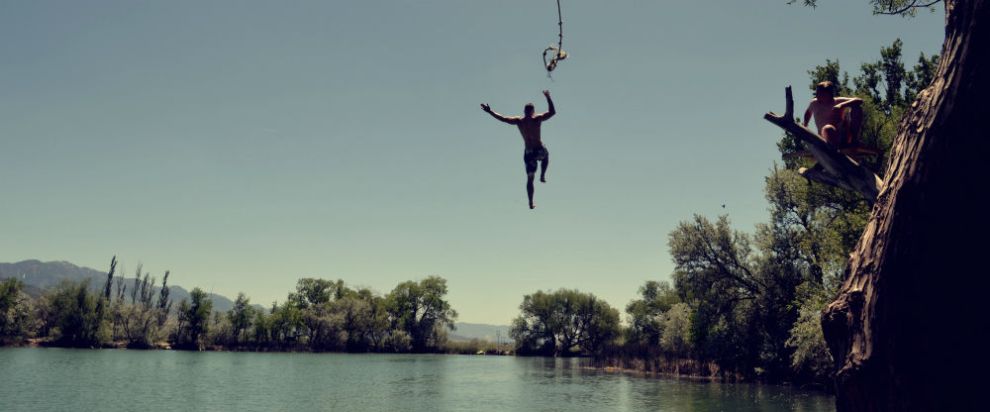
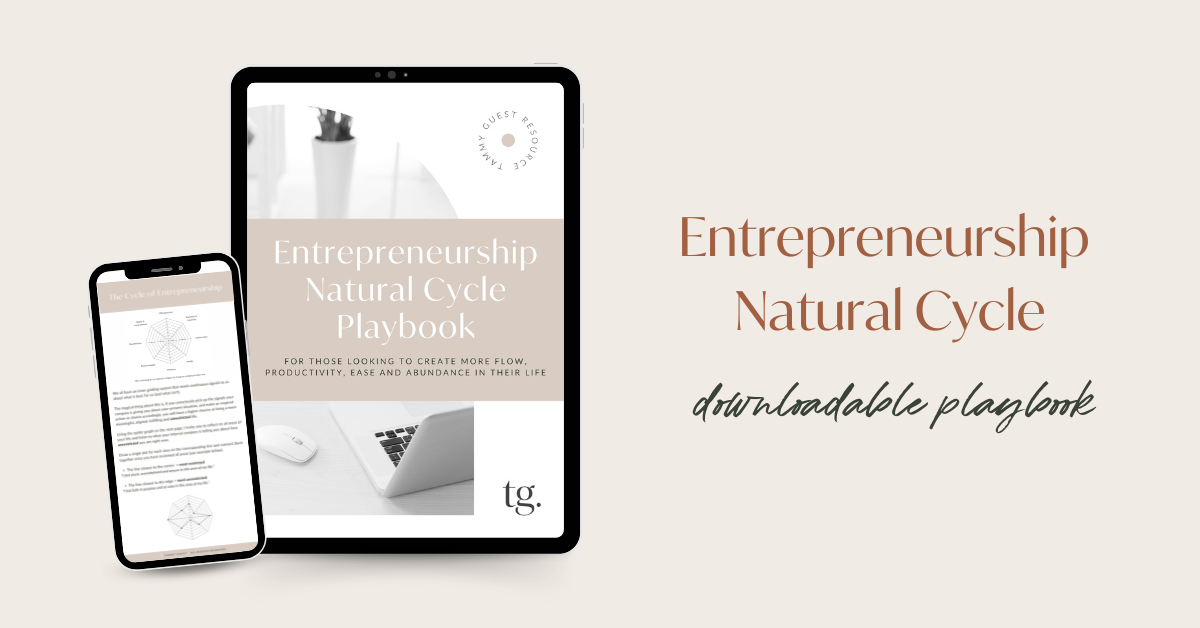


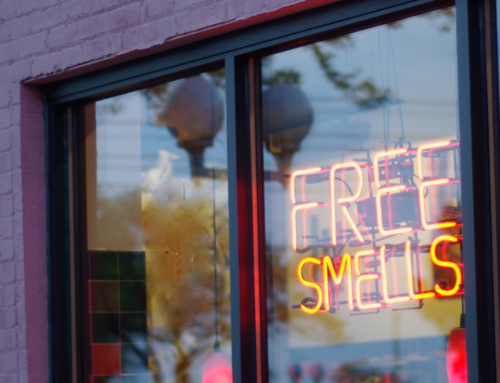
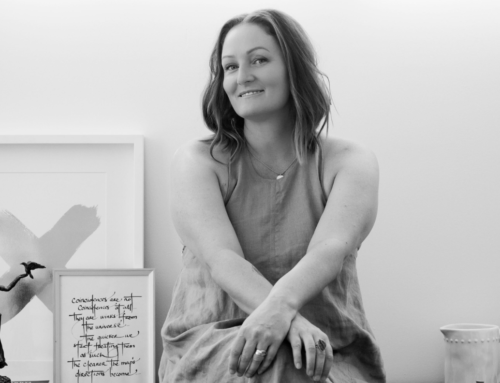
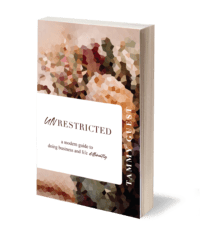
Leave A Comment